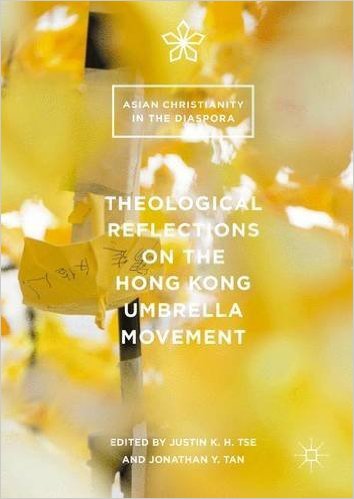What this means in turn is that Zen also does not see ‘Rome’ as one coherent entity either. Reflecting on Benedict XVI’s pontificate, Zen distinguishes between the person of the Holy Father and the various Vatican curia offices that sometimes contradict and hamper the pope’s initiatives. On the one hand, Zen reiterates the praise he gave for Benedict XVI’s 2007 letter to Chinese Catholics at the time of its publication for its balance between the Catholic principles of the truth of communion and compassion for the human person having to live in actual historical reality. However, he blasts the Vatican curia for undermining Benedict XVI by following a path of ‘compromise’ with the PRC, keeping silent on the plight of Chinese Catholics who are loyal to Rome while trying to appease Beijing. As Zen continuously reiterates, this is a continuation of the 1970s Vatican policy of ostpolitik, seeking to pacify authoritarian regimes instead of openly denouncing them for violent repressions of their own people. As Zen suggests, neither John Paul II nor Benedict XVI went along with such ostpolitik measures for the most part, but the Holy Father is not the curia, and the curia is not the Holy Father. The problem, though, is that it seems to Zen that Francis is relying entirely on his curia on the question of China, tilting even him to an ostpolitik approach. Some tension, even if it was unhealthy and paralyzing during the times of Benedict XVI, is (for Zen) better than no tension.
Why would it be so bad to sign an agreement with the PRC to acknowledge the CPA? Is it only because it throws underground Chinese Catholics under the bus? Is it just because it would pit Francis against Benedict? Here, Zen shows himself to be the masterful church-state theorist that he is, a true child of the Second Vatican Council. What acknowledging the CPA would do, as Benedict XVI himself acknowledges in the 2007 letter to Chinese Catholics, is to subsume the church to the authority of the state. Not only does this fly wildly in the face of a Catholic sensibility more generally, but it runs completely contrary to Vatican II, where the Church is the ‘people of God’ and is in solidarity with ‘the joys and the hopes, the griefs and the anxieties of the men of this age, especially those who are poor or in any way afflicted.’ A people is not to be equated with a state, as John Paul II brilliantly showed in his support of the Polish Solidarity Movement as the legitimate voice of the Polish people, the Polish communist state be damned. Indeed, Zen explicitly references the widely acknowledged de facto leader of the Polish people in Communist Poland, Stefan Cardinal Wyszyński, in another discussion of China, driving home the Vatican II point that the state and people are not the same. To recognize the CPA would be close this gap between the people and the state, to say that the PRC is the Chinese people and that the CPA is Chinese Catholicism.
 Far from calling for schism, then, Zen is trying to prevent it. After all, a church in the state’s pocket would no longer be catholic; it would become the propaganda machine of the state. There isn’t much need to speculate on what this might look like; one need only look, for example, to the Moscow Patriarchate propagating the ideologies of the ‘Russian World’ or to the embeddedness of the various churches of the Anglican Communion with authoritarian capitalist state regimes to get a taste of things to come. On this note, the PRC under the leadership of Xi Jinping certainly appears to have plans to advance a ‘Chinese Dream’ of material prosperity and a ‘One Belt, One Road’ regional strategy to integrate Central Asian economies with the PRC’s, among other international trade initiatives and attempts to develop a robust domestic economy. There is no doubt that the narrative of China, as well as other developing and even developed countries, lifting millions out of poverty is inspiring. But aside from throwing the poor under the bus – in a stunning rejection, no less, not only of Catholic social teaching, but of any Marxist tenets to stand for the materially oppressed – the demands of the people made to various states in the post-2008 occupy movements has been for the more existential good of human dignity and political agency in the face of capitalist corruption. Zen stood in critical solidarity with these movements too, advocating for Occupy Central with Love and Peace in Hong Kong in 2013-4, standing with students during the 2014 Umbrella Movement pro-democracy occupations, and criticizing the protesters for failing to consider political strategy by taking too long to wrap up their protest. The real schism that would be possible if the Vatican now conflates the state with the people would be to gain the state and to lose the people, for it would demonstrate that all the Vatican II talk about solidarity with the poor and afflicted is all just fluff because capital does all the good theology in Rome too.
Far from calling for schism, then, Zen is trying to prevent it. After all, a church in the state’s pocket would no longer be catholic; it would become the propaganda machine of the state. There isn’t much need to speculate on what this might look like; one need only look, for example, to the Moscow Patriarchate propagating the ideologies of the ‘Russian World’ or to the embeddedness of the various churches of the Anglican Communion with authoritarian capitalist state regimes to get a taste of things to come. On this note, the PRC under the leadership of Xi Jinping certainly appears to have plans to advance a ‘Chinese Dream’ of material prosperity and a ‘One Belt, One Road’ regional strategy to integrate Central Asian economies with the PRC’s, among other international trade initiatives and attempts to develop a robust domestic economy. There is no doubt that the narrative of China, as well as other developing and even developed countries, lifting millions out of poverty is inspiring. But aside from throwing the poor under the bus – in a stunning rejection, no less, not only of Catholic social teaching, but of any Marxist tenets to stand for the materially oppressed – the demands of the people made to various states in the post-2008 occupy movements has been for the more existential good of human dignity and political agency in the face of capitalist corruption. Zen stood in critical solidarity with these movements too, advocating for Occupy Central with Love and Peace in Hong Kong in 2013-4, standing with students during the 2014 Umbrella Movement pro-democracy occupations, and criticizing the protesters for failing to consider political strategy by taking too long to wrap up their protest. The real schism that would be possible if the Vatican now conflates the state with the people would be to gain the state and to lose the people, for it would demonstrate that all the Vatican II talk about solidarity with the poor and afflicted is all just fluff because capital does all the good theology in Rome too.
Read this way, Cardinal Zen is not calling for schism from Rome. He is calling Francis to make good on his statements about a ‘poor Church for the poor,’ to be faithful to the spirit of Gaudium et spes as it is beautifully articulated in Laudato Si’ as ‘care for our common home,’ to double down over against his own curia with his own denunciation of ‘an economy that kills’ in Evangelii gaudium. Indeed, hearing the humble pope recently laud the PRC for its material prosperity is perhaps a sign that it is the wealthy who are winning in Rome. To position Zen as some kind of schismatic along the lines of the Society of St Pius X may be a strategic way to shut Zen up by locking him in the ideological prison of Euro-American conversations about the real lines of continuity between Benedict and Francis – discussions that seldom distinguish between people and state, pope and curia – but in waving the false flag of schism with Zen, the ostpolitik apologists are not so much preventing it, but proving themselves to authoritarian capitalist regimes everywhere as useful idiots.
Justin K.H. Tse is Visiting Assistant Professor of Asian American Studies at Northwestern University. He is the lead editor of the forthcoming book Theological Reflections on the Hong Kong Umbrella Movement (Palgrave).
https://www.youtube.com/watch?v=fMzcwlmhfws
For more from Justin Tse see The Church’s Geopolitical Chess Strategy and TOP10 Books on Vatican Relations with China and Hong Kong
Please consider making a donation to this blog through the donation button on the upper right side of its homepage. We’re moving to a new place and things will be tight financially for the first few months.
Stay in touch! Like Cosmos the in Lost on Facebook:












